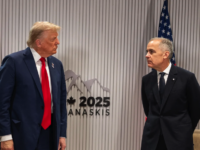After years of dismissing the warnings of likely retaliation, the Canadian government caved last night on the digital services tax. Faced with the prospect of the U.S. suspending trade negotiations, Finance Minister François-Philippe Champagne announced that the government would drop the DST altogether, payments scheduled for Monday would be cancelled, and legislation will be forthcoming to rescind the legislation that created it in the first place. Over the weekend, I wrote about the repeated warnings that the DST was a serious trade irritant with the U.S. that cut across party and presidential lines. While ignoring the risks was bad enough, I argued that Canada played its DST card too early. Rather than delaying implementation in the hopes of incorporating it into a broader trade deal with U.S., it marched ahead, leading to an entirely predictable response from U.S. President Donald Trump. That left Canada in a no-win situation: stick with the DST but face the prospect of higher tariffs or embarrassingly drop the DST (and $7.2 billion in revenue over five years) with only restarting negotiations that were on until government overplayed its hand to show for it.
Post Tagged with: "carney"
Ignoring the Warning Signs: Why Did the Canadian Government Dismiss the Trade Risks of a Digital Services Tax?
U.S. President Donald Trump announced yesterday that he was suspending trade negotiations with Canada due to the imminent implementation of the digital services tax (DST). The result could be increased tariffs on Canadian products and a stalemate on many of the current trade battles between the two countries. This result should not come as a surprise. Indeed, the prospect of a trade war over the DST has been readily apparent for years. In my Law Bytes podcast episode in May on Canadian digital policy under Prime Minister Mark Carney, it was the top short term issue (I did not anticipate burying lawful access in a border bill).
Just prior to Trump’s inauguration in January, I wrote:
Solomon’s Choice: Charting the Future of AI Policy in Canada
The decision to create a Minister for Artificial Intelligence sends an unmistakable signal that the Carney government recognizes the need to prioritize AI as a core part of its economic strategy. My Globe and Mail op-ed notes that while few doubt the importance of AI, what the federal government should do about it is far less certain. The Trudeau government emphasized both government handouts and regulation, with billions in AI spending promises on the one hand and ill-considered legislation that was out of step with global trends on the other. The result was a mish-mash of incoherent policies that left the AI sector confused, civil society frustrated and Canada at risk of being left behind.
Elevating AI to a full ministerial position suggests Prime Minister Mark Carney wants to fix the status quo, but in some ways the new office looks like an impossible job dressed up in ambition. Evan Solomon, the minister, steps into a role full of symbolism but operationally murky. Mr. Solomon may well find that cutting more cheques or introducing regulations won’t solve the issue.
The Law Bytes Podcast, Episode 232: What Will Canadian Digital Policy Look Like Under the New Liberal Carney Government?
Digital policy did not play a major role in the recent federal election, but the new Mark Carney Liberal government is quickly going to face a wide range of digital-related policy questions. This week’s Law Bytes podcast examines the short, medium and longer term issues including the future of the digital services tax, Canadian digital sovereignty, and the fate of legislation that did not make it past the finish line in the last Parliament.










